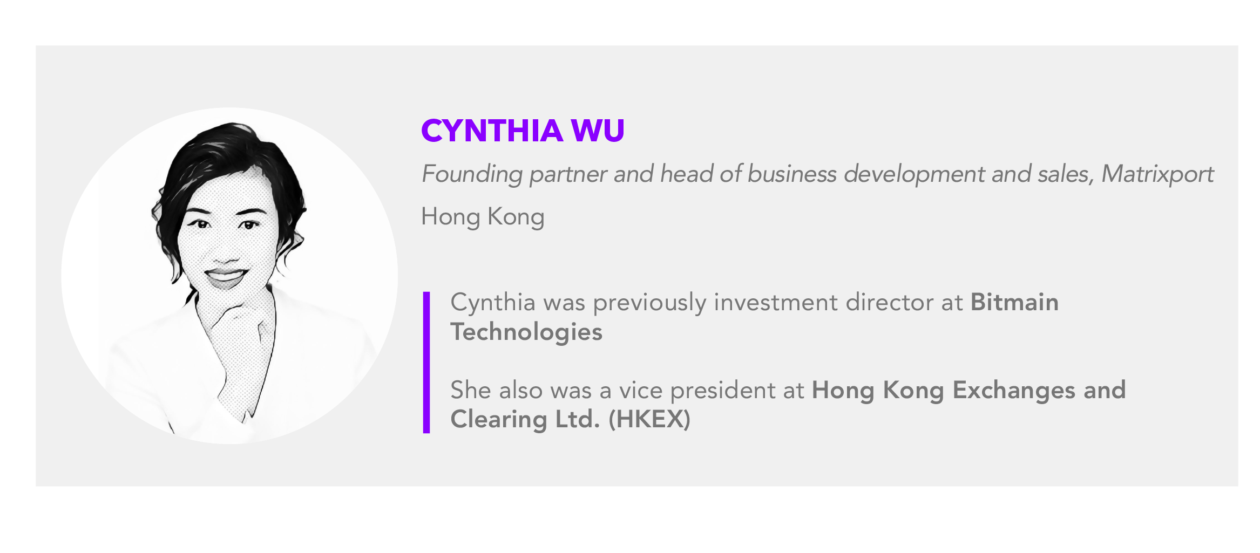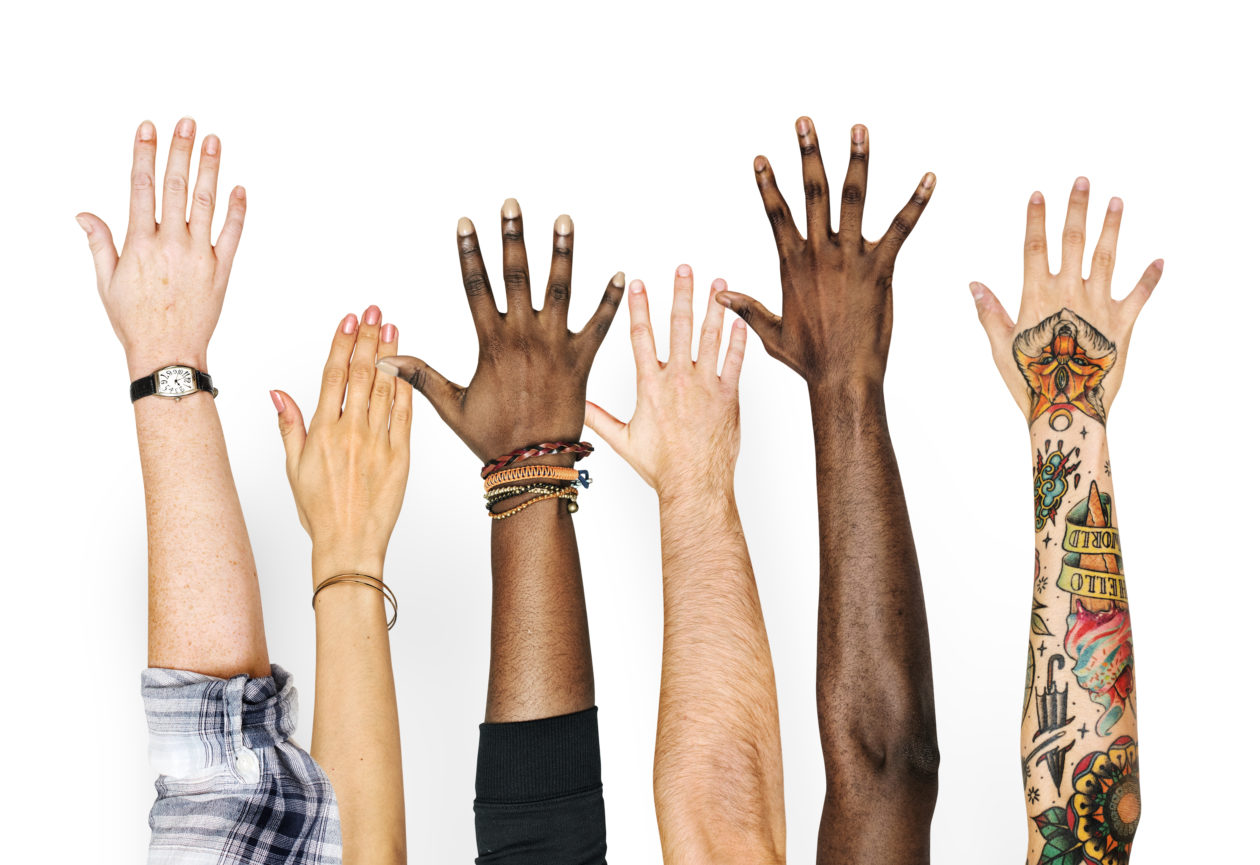Created as an alternative to traditional finance and decentralized by nature, blockchain-based fintech is ushering in a new era of inclusivity. Yet, the worlds of finance and technology that crypto bridges are notoriously male-dominated, and despite its nascency, crypto has been affected by this legacy. Powered by the economics associated with the rise of Web 3.0, tokenization and non-fungible tokens (NFTs), blockchain’s innate values of inclusivity may not only be a driver of diversity but prove to be one of society’s great equalizers.
A foundation in empowerment
Drawing on lessons from the 2008 Great Recession, chief of which was the preponderance of banks in the overall financial ecosystem, crypto was designed to empower individuals and give them access to more economic opportunities.

Fast forward to today, innovations in crypto have created even more opportunities to earn. Particularly in the past year, we have seen the emergence of play-to-earn games — blockchain-based video games that harness cryptocurrencies to reward players.
Against the backdrop of massive jobs losses precipitated by the global pandemic, which women and youth bore the brunt of in Southeast Asia, play-to-earn games have proven to be effective in safeguarding the livelihoods of low-wage workers. In the case of Axie Infinity, a popular NFT-based online video game, people in the Philippines could earn up to 6,000 pesos a day through the game — more than 11 times the country’s highest minimum wage of 537 pesos.
Apart from the earning opportunities, crypto has also benefited those in economically precarious situations in Asia. An oft-cited Chainalysis report on the growth in worldwide adoption of cryptocurrency pointed to two key reasons for the use of cryptocurrencies in emerging markets — preserving savings in the face of currency devaluation and the receiving of remittances.
Of the people, by the people and for the people
Crypto’s mojo lies in its core technology, the decentralized ledger, where peer-to-peer interactions — such as transactions, voting and trades — can take place freely without a central authority. Over time, this technology also enabled the creation of decentralized teams, removed from the barriers presented by the world — from geographical boundaries to economies of scale. Decentralization, by design, accelerates diversity, enabling anyone to be involved in the system regardless of who you are and where you are from.
The ability to participate in crypto from anywhere can go beyond the individual level, we have seen entire emerging economies being given the opportunity to contribute, collaborate and ultimately advance. The same can be said for smaller ecosystem players, who would have been far from “the table” in the era of Web 2.0, but who can now make a difference and drive change in the new economy, powered by decentralized innovations.
Arguably most important when it comes to equality, crypto has introduced new models of governance. In the traditional world, all powers of governance are tied to a small and select group of people, but the recent comeback of decentralized autonomous organizations (DAOs) showcases the potential of the participatory crypto ecosystem. DAOs are enabling a new form of governance and decision-making that is boss-less and democratic, be it making venture capital investments or buying a real-world football club. A defining feature in a DAO is the shared purpose for which it was created, allowing everyone to have a seat at the table — mirroring the aspirations on which crypto was founded.
Crypto-backed cultural renaissance
While crypto culture used to be associated with “crypto-bros,” we are now seeing it evolve and mature into a hotbed for inclusivity and cultural diversity. NFTs, which have taken the world by storm, are a prime example of crypto culture’s revival.
Beyond investments, NFTs provide an equal platform for users to showcase their talents and unique voices. Yam Karkai, a renowned artist, used her NFT art series, World of Women, to bring women to the forefront of NFTs. A collection that was celebrated within the industry and beyond.
When it comes to gender representation in NFTs, a November 2021 report by ArtTactic found that female artists accounted for “less than 16%” of NFT sales over the past 21 months. While this is a disappointingly small number, it suggests that the number far eclipses female representation in traditional fine art, where women accounted for a mere 2% of the US$196.6 billion in total art auction sales. While we still have progress to make, this at least showcases the equalizing potential of crypto.
Charting an inclusive future from within
Crypto is undoubtedly breaking the bias. The innate DNA of our industry is to reject the status quo and empower everyone to access new economic opportunities, contribute to change, and define new cultural norms.
To build on this, industry players can muster a movement within their organizations so that we can collectively unleash crypto’s positive momentum as the great equalizer. As leaders, we have a responsibility to take an active role in creating a conducive environment that encourages diversity and inclusivity in the workplace.
For starters, it is important that we hire the best talent for the job, irrespective of gender. In doing so, we are naturally tapping into a rich and diverse talent pool. We have seen success in our approach at Matrixport where women represent 40% of our staff, with a rate of 30% at the senior levels. As we rapidly expanded our global team and introduced new functional roles, our search for the best talent — from developers to marketing, from sales to technologists — has enabled greater inclusion and diversity across the board.
As we champion diversity within the organizations of today, we also need to invest in the talent of tomorrow, ensuring students understand their potential within the fintech and crypto sector.
The tomorrow: crypto as a force for good
As we collectively shape the future of financial services, our impact on society will transcend beyond the economic value that is created, stored or transferred. The industry and those that build it need to champion the values of crypto — equality, diversity and inclusion — as a force for good. So what are we waiting for?




